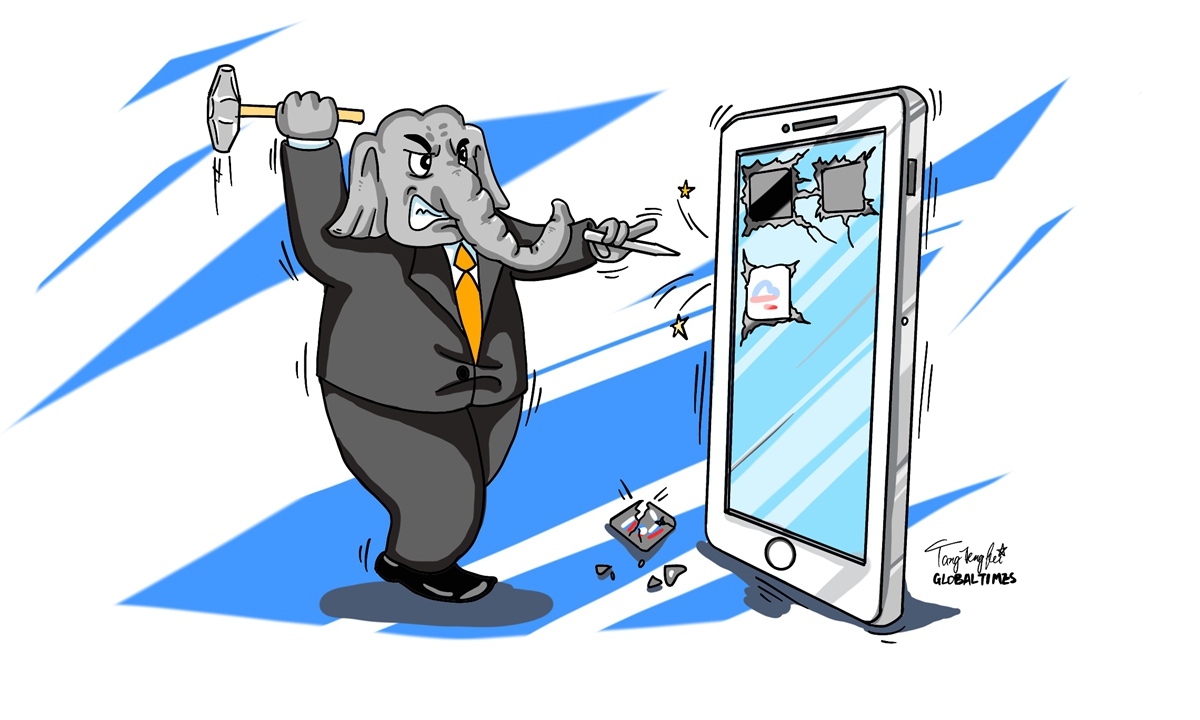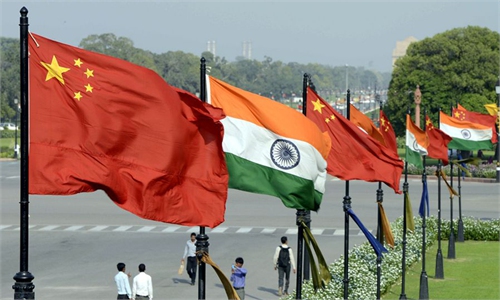
Illustration: Tang Tengfei/GT
India's ministry of electronics and information technology has issued notices to make permanent a ban imposed in June on TikTok, Wechat, Baidu, UC Browser and 55 other Chinese apps, Indian media reported on Monday.Indian media outlets claimed that when India first imposed the ban, the Indian government gave the 59 apps a chance to explain their positions on compliance with privacy and security requirements, but "the government is not satisfied with the response or explanation given by these companies."
This is an excuse and a trick of New Delhi. There are two well-known reasons for New Delhi to ban Chinese apps. One is to vent their anger over border conflicts, and the other is to make room for Indian products by suppressing Chinese apps as a form of protectionism. New Delhi has a habit of banning products from foreign companies, and American, Japanese and South Korean companies have all experienced this Indian trick in the past. India's foolish policy of "burn all, kill all, loot all" on Chinese products legally sold in India is a gross violation of World Trade Organization rules and nothing less than performance of robbers in the civilized world.
All Chinese apps developed in India have been officially and legally registered. They have nurtured the relevant market in India by starting their own business. India is pushing them out altogether and replacing them with local products. This has nothing to do with self-reliance, it is simply robbery. Even Indian companies that have profited from the robbery know they are in a business environment where political leverage can be used to overturn the interest balance at any time. The world would better understand that India is still in the barbaric era and has a long way to go before it can consolidate its basic commercial civilization including its commitment to sovereignty.
New Delhi has shown a tendency of business ignorance. It lacks the wisdom and ability to coordinate opening-up and self-reliance. India is still a backward country. Protectionism is a double-edged sword that is more likely to hurt Indian companies as well. India dared not join the Regional Comprehensive Economic Partnership (RCEP). Instead, it rushed to raise tariffs to seek instant benefits. It seems that India's policymaking is in the hands of a group of laymen in international trade.
India, whose GDP is about one-fifth of China's, wants to impose sanctions on China. This shows its illiteracy about sanctions. In general, India's sanctions on China can only hurt itself like a fruitless "suicide bomb attack."
China has been reluctant to take strong countermeasures against India, because we don't want to make a new enemy in the neighborhood. This is China's vision and strategy. But some Indian elites think they can consume China's restraints, like spoiled children on the southern side of the Himalayas. We want to warn New Delhi: Do not calculate too much, or you will bear the consequences of your own misdeeds.
We propose that Chinese enterprises should defend their rights by resorting to laws and demand the Indian government compensate their losses. Those Chinese companies have legal permission in India in the first place and have contributed to local society. But they were driven out of the country due to political reasons. This is unprecedented prosecution against specific groups in international business activities. Chinese companies should not accept this as it is. They need to fight back.
Even though they could not win lawsuits in India, they need to have themselves heard. They should let the world know how bad India's business environment is. New Delhi shall pay the price at the cost of its own reputation.
India's moves have made people aware of the shallowness of this country's elite political culture. In addition, it is evident that India's political system is not able to stop some stupidities from happening. If this continues, India's development won't be very smooth, and the possibility of it falling sharply at some point in the future is seriously high.



